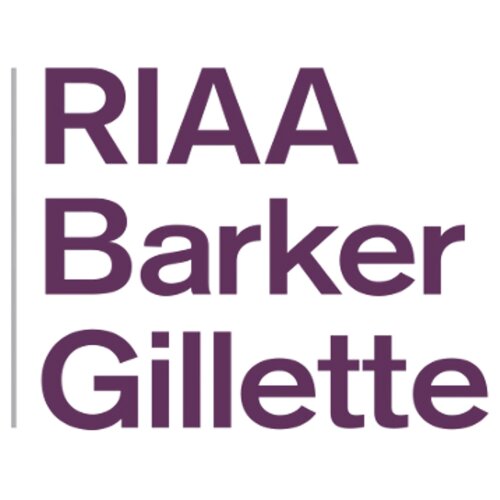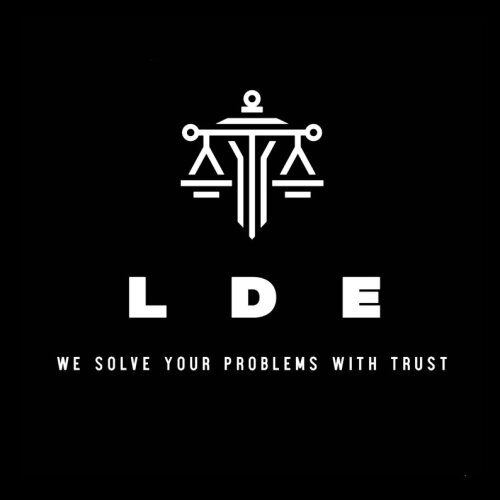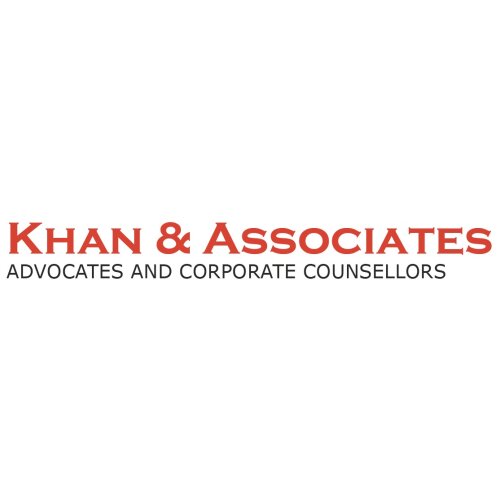Best Renewable & Alternative Energy Lawyers in Islamabad
Share your needs with us, get contacted by law firms.
Free. Takes 2 min.
List of the best lawyers in Islamabad, Pakistan
About Renewable & Alternative Energy Law in Islamabad, Pakistan
Renewable and alternative energy plays a vital role in Pakistan's energy security and environmental sustainability. Islamabad, as the capital city, is at the forefront of adopting and regulating renewable energy technologies. The sector includes solar, wind, hydropower, biomass, and other technologies that aim to reduce reliance on fossil fuels and promote cleaner energy sources. The government has introduced several policies, incentives, and legal frameworks to encourage investment and innovation in the renewable and alternative energy sector.
Why You May Need a Lawyer
Navigating the legalities in renewable and alternative energy projects can be complex due to regulatory requirements, licensing, environmental standards, and contractual obligations. Common situations where individuals or companies may require legal assistance include:
- Obtaining licenses and permits for establishing energy projects
- Understanding and taking advantage of government incentives or subsidies
- Drafting and negotiating power purchase agreements
- Resolving land acquisition and zoning issues
- Handling disputes or litigation over renewable energy projects
- Ensuring compliance with environmental and safety standards
- Protecting intellectual property related to clean technology innovations
- Advising on foreign investment and joint ventures
- Responding to evolving regulatory changes impacting the sector
Local Laws Overview
Islamabad's renewable and alternative energy sector operates within the broader legal and policy framework established by the federal government. Key legal aspects include:
- Alternative Energy Policy: National policies set guidance for renewable energy targets, incentives, and project development procedures.
- Role of AEDB: The Alternative Energy Development Board (AEDB) is responsible for promoting and facilitating the development of alternative and renewable energy in Pakistan, including Islamabad.
- NEPRA Regulations: The National Electric Power Regulatory Authority (NEPRA) issues licenses and regulates tariffs for power producers, including those from renewable sources.
- Federal and Local By-laws: Islamabad has specific zoning regulations, building codes, and environmental regulations which must be observed for renewable energy installations.
- Environmental Compliance: Projects must comply with environmental impact assessment requirements from the Pakistan Environmental Protection Agency (EPA).
Understanding and navigating these laws can be demanding and often requires professional legal expertise to ensure compliance and minimize risks.
Frequently Asked Questions
What are the main types of renewable energy used in Islamabad?
The main types include solar, wind, small-scale hydropower, and biomass. Among these, solar energy has seen significant growth due to Islamabad's favorable sunlight conditions and government incentives.
Do I need permission to install solar panels for my home or business in Islamabad?
For most domestic installations of a moderate size, formal permission may not be needed but adherence to building codes and utility regulations is required. Large-scale or grid-connected installations typically require approvals from relevant authorities such as the Islamabad Electric Supply Company (IESCO) and local development agencies.
What incentives are available for investing in renewable energy in Islamabad?
The government offers several incentives such as tax exemptions, customs duty exemptions on equipment, and guaranteed tariffs for electricity producers. Specific incentives can vary based on project size and technology.
Who regulates renewable energy projects in Islamabad?
The main regulatory bodies are the Alternative Energy Development Board (AEDB), the National Electric Power Regulatory Authority (NEPRA), and the Environmental Protection Agency (EPA).
Are there restrictions on foreign ownership in renewable energy projects?
Pakistan generally allows 100 percent foreign ownership in the renewable energy sector. However, compliance with investment and security regulations is necessary, and clearance may be required for certain strategic locations.
What legal challenges might I face in developing a renewable energy project?
Challenges include acquiring land, obtaining permits, complying with environmental regulations, negotiating power purchase agreements, and securing financing. Legal advice can help navigate these hurdles effectively.
How is electricity from renewable projects sold in Islamabad?
Electricity produced is typically sold to the national grid under Power Purchase Agreements (PPAs) with state-owned entities such as the Central Power Purchasing Agency (CPPA) or through net metering with local DISCOs like IESCO.
Can I export renewable energy technology to Islamabad?
Yes, Pakistan encourages the import of renewable energy technology and equipment, often with concessional duties or exemptions. Compliance with standards and certification is required.
What environmental approvals are necessary for renewable projects?
Most projects need an Environmental Impact Assessment (EIA) and No Objection Certificate (NOC) from the EPA, especially for larger or commercial installations.
How can a lawyer help with renewable and alternative energy matters?
A lawyer can assist with due diligence, contract drafting, regulatory compliance, permit acquisition, dispute resolution, and ensuring all legal obligations are met throughout project development and operation.
Additional Resources
For further guidance, consider consulting the following organizations and government bodies:
- Alternative Energy Development Board (AEDB) - National focal agency for renewable energy projects
- National Electric Power Regulatory Authority (NEPRA) - Regulator for power projects, licensing, and tariffs
- Pakistan Environmental Protection Agency (EPA) - Environmental clearances and regulations
- Islamabad Electric Supply Company (IESCO) - Local utility for grid connection and net metering approvals
- Pakistan Renewable Energy Society - Industry and advocacy support
- Federal Board of Revenue (FBR) - Information on tax benefits and exemptions
- Chamber of Commerce & Industry - Networking and business support for renewable energy investors
Next Steps
If you require legal assistance in the renewable and alternative energy sector in Islamabad, consider the following steps:
- Gather all relevant documents related to your project or investment
- Identify the specific legal issues or questions you need help with
- Contact a lawyer or law firm specializing in energy law or renewable energy projects
- Prepare a list of questions to discuss during your consultation
- Follow up by reviewing any advice or documentation provided by your lawyer
Engaging a qualified legal professional can give you clarity on your rights and responsibilities, help you take advantage of available incentives, and ensure your project complies with all applicable laws and regulations.
Lawzana helps you find the best lawyers and law firms in Islamabad through a curated and pre-screened list of qualified legal professionals. Our platform offers rankings and detailed profiles of attorneys and law firms, allowing you to compare based on practice areas, including Renewable & Alternative Energy, experience, and client feedback.
Each profile includes a description of the firm's areas of practice, client reviews, team members and partners, year of establishment, spoken languages, office locations, contact information, social media presence, and any published articles or resources. Most firms on our platform speak English and are experienced in both local and international legal matters.
Get a quote from top-rated law firms in Islamabad, Pakistan — quickly, securely, and without unnecessary hassle.
Disclaimer:
The information provided on this page is for general informational purposes only and does not constitute legal advice. While we strive to ensure the accuracy and relevance of the content, legal information may change over time, and interpretations of the law can vary. You should always consult with a qualified legal professional for advice specific to your situation.
We disclaim all liability for actions taken or not taken based on the content of this page. If you believe any information is incorrect or outdated, please contact us, and we will review and update it where appropriate.

















